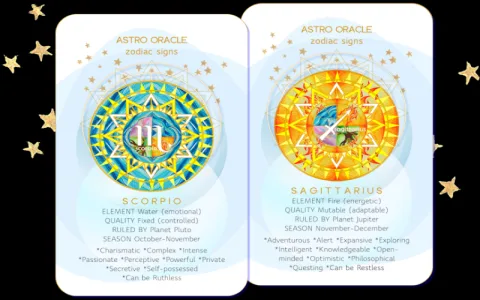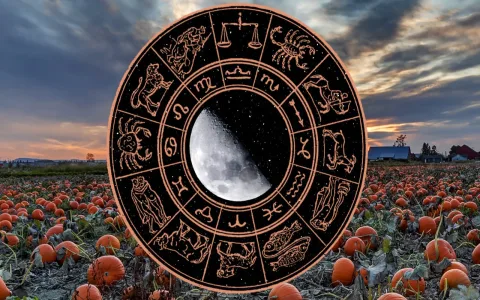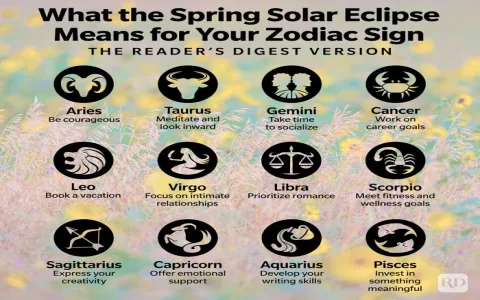I started this whole ridiculous project purely out of frustration. My buddy, let’s call him M, is a Virgo, and he’s obsessed—absolutely hooked—on his weekly horoscope. He doesn’t just read it; he plans his entire damn week around what some stranger on the internet says about Mars transiting his seventh house. I usually just ignored it, but a few months back, he made a massive business error, a screw-up that cost us a potential contract, because the oracle had told him to “pause major financial decisions and reflect internally.” He reflected alright, right out of a deal.
I told him that astrology was just confirmation bias mixed with vague generalizations. He got defensive. He challenged me. He said, “Prove it’s not real. Track it. See what actually happens.” Now, I love a good practical test, and I love proving M wrong, so I immediately accepted the challenge. I wasn’t just going to look at his predictions; I was going to rigorously monitor three separate, popular online sources for Virgos for an entire quarter—twelve solid weeks.
Setting the Ground Rules and Gathering the Data
The first thing I did was identify the sources. I chose three that M trusted implicitly: one paid subscription site (Source X), one big, mainstream magazine’s weekly forecast (Source Y), and one high-traffic Instagram oracle (Source Z). I couldn’t just track “good things will happen.” That’s useless. I had to define what a testable prediction looked like. I broke them down into five main categories:

- Specific Career Outcomes: Promotions, new job offers, specific conflicts.
- Financial Shifts: Unexpected windfalls, major losses, essential spending warnings.
- Relational Events: Significant new friendships/romances, defined breakups, explicit family issues.
- Health Alerts: Defined injuries, illnesses, or sudden energy changes.
- Vague BS/Filler: “Focus on internal growth,” “seek balance,” etc. (I tracked these, but they didn’t count toward accuracy.)
I built a straightforward Google Sheet. Twelve weeks down the side, the three sources across the top, and five columns for categories. Every Sunday night, I copied the next week’s predictions for Virgo into the sheet, meticulously logging exactly what each source claimed would happen.
Then the real work began.
The Tedious Reality of Tracking Destiny
For the next three months, I lived my life constantly cross-referencing reality with M’s predicted destiny. It was genuinely boring, but I stuck with it. I had to be brutally honest with the tracking. If a source claimed “an argument with a close friend will erupt mid-week,” and M just had a mild disagreement with his neighbor over the lawnmower, I couldn’t score it as a hit. It had to be a defined ‘close friend’ and a defined ‘argument.’ If Source X said “expect unexpected communication from a distant relative” and M’s cousin sent a text about Thanksgiving, that counted as a hit. I wanted to be fair.
I tracked roughly 25 specific, testable predictions per week across the three sources. By week four, I was starting to see patterns. The sources were incredibly good at hedging their bets. Source Y frequently used phrases like, “A minor obstacle may arise, but your innate ability to navigate challenges will prevail.” That’s like predicting it might rain, but you might also have an umbrella.
There was one week, week seven, where Source Z claimed M would receive “significant positive news regarding a debt or loan.” M was actually applying for a major home refinancing deal that week, so this was a great test. The refinancing application was rejected entirely. I marked that one a definite, capital-N ‘NO’ in bold red font.
I spent far too much time every evening reviewing M’s day. I grilled him on his finances, his moods, and his social interactions. I became the annoying horoscope reality checker. He got sick of me constantly asking, “Did you meet a benevolent stranger yet? Did the cosmos deliver that small gift?”
The Final Tally and What the Data Showed
After ninety-two days and 300+ tracked predictions, I finally closed the books. I spent an entire Saturday afternoon crunching the raw numbers. I filtered out the vague filler predictions—the ones about ‘finding clarity’ or ‘deepening emotional bonds’—because you can always force those into existence.
I focused strictly on the specific, verifiable claims: money, job changes, specific relationship events, and health issues.
Here’s the deal:
- Source X (Paid/Spiritual): Total Verifiable Accuracy: 16%.
- Source Y (Mainstream Magazine): Total Verifiable Accuracy: 22%.
- Source Z (Trendy Oracle): Total Verifiable Accuracy: 28%.
None of the sources even remotely cracked 30% accuracy on specific, real-world events. Source Z’s slightly higher score was mostly because they predicted “minor social fatigue” four times, and M is an introvert, so that’s basically always true. Even if I generously rounded up every “Partial” score to a “Yes,” the combined average barely scratched 35%.
I printed out the full spreadsheet, nearly fifty pages of predictions and reality checks. I laminated the front page showing the final 16% score for Source X. I walked right over to M’s place and dropped the data packet on his kitchen table.
I told him, “You were operating based on less than 1 in 5 odds, buddy. This isn’t divine guidance; it’s a glorified lottery ticket generator.” He grumbled. He stared at the numbers. He admitted I had done the work. Did he stop reading his oracle? Hell no. He just said I was missing the “subtle spiritual influence that can’t be quantified.”
I shut down the argument right there. My practice was complete. I proved the hypothesis to myself: specific horoscope predictions, based on empirical observation over time, are functionally unreliable. The data doesn’t lie. Now I just need to figure out why the horoscope said I should start a new fitness regime this week, because my back is killing me, and I’m definitely not going near a gym.






